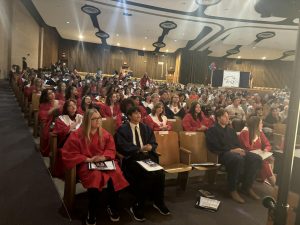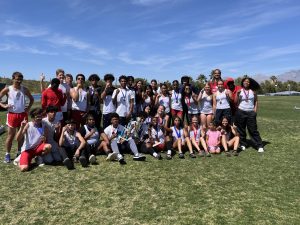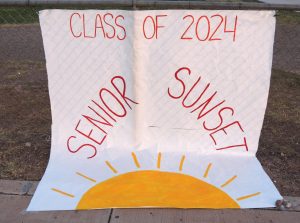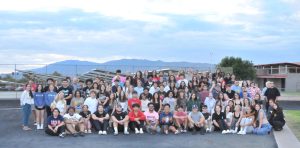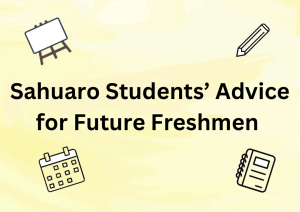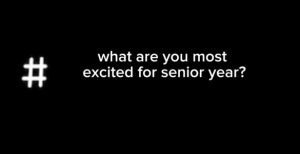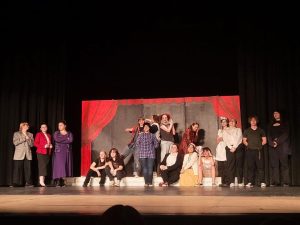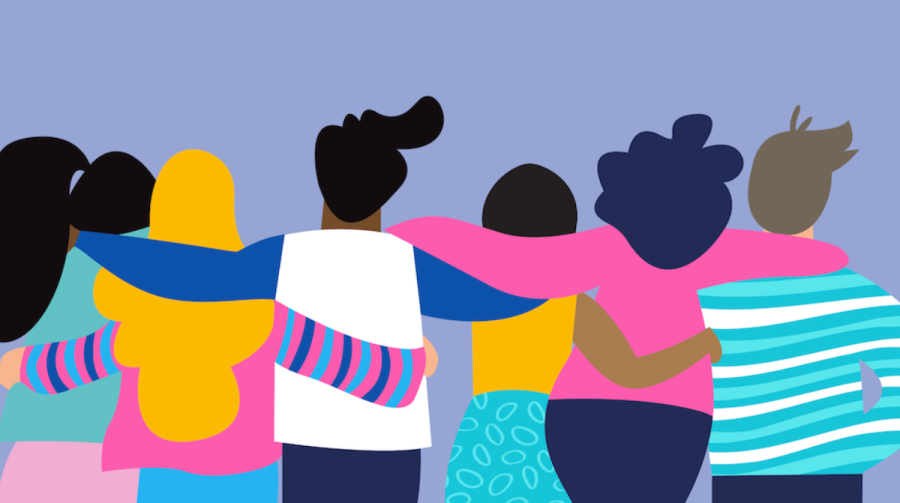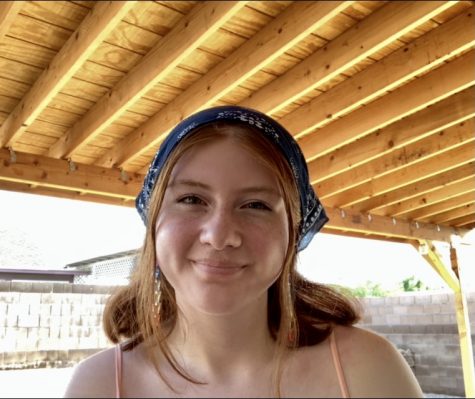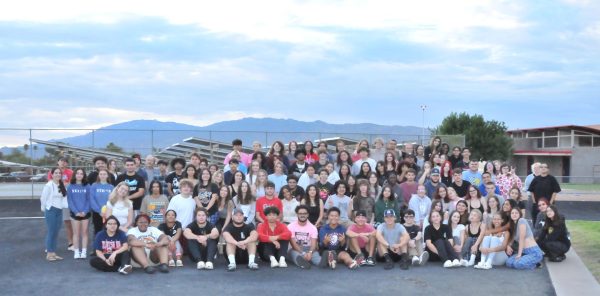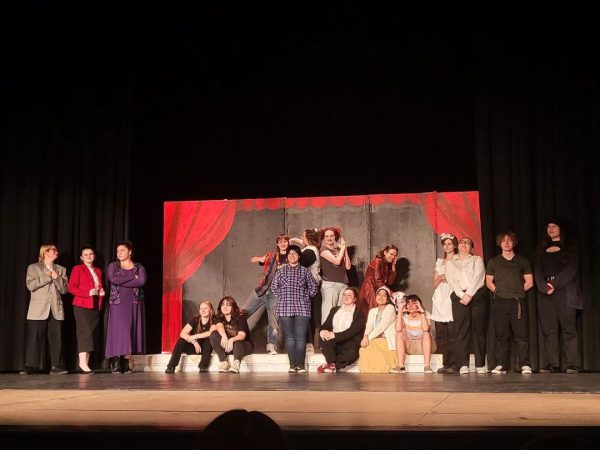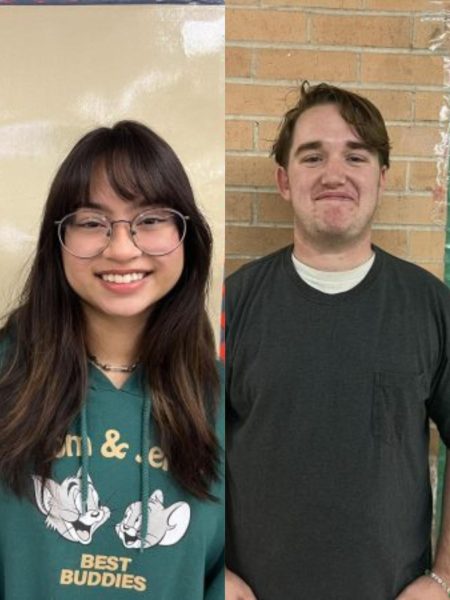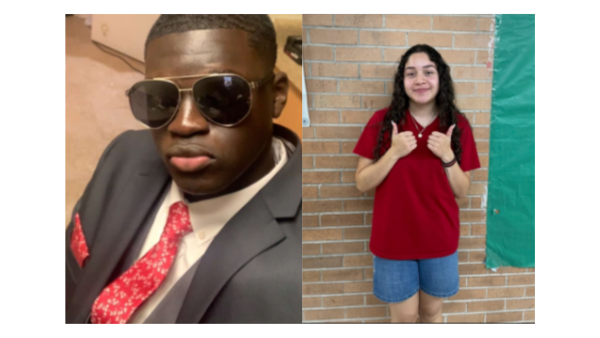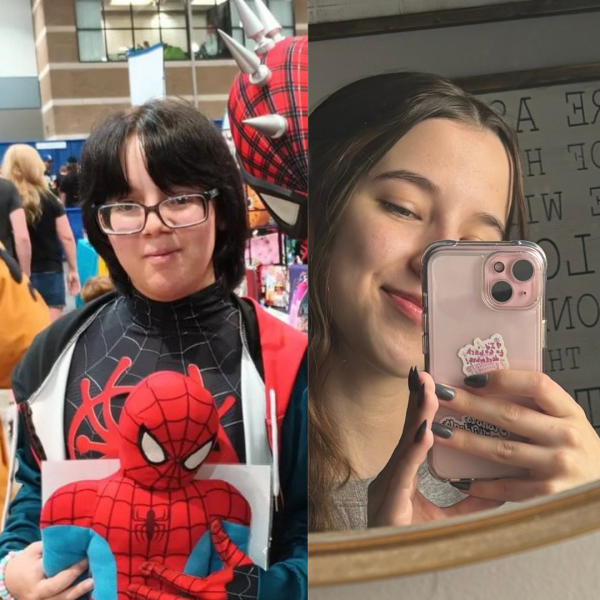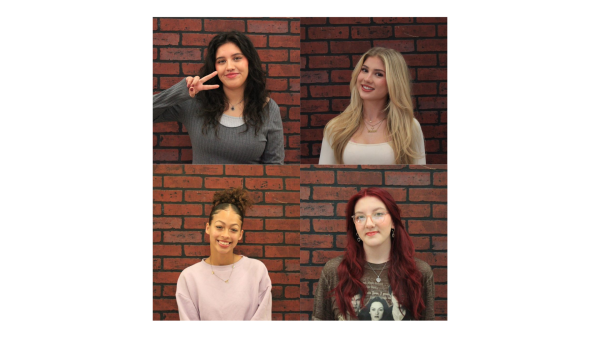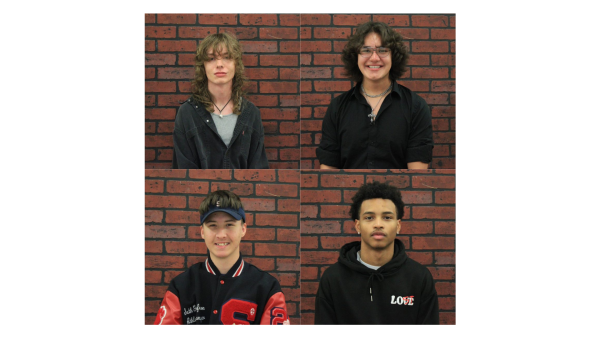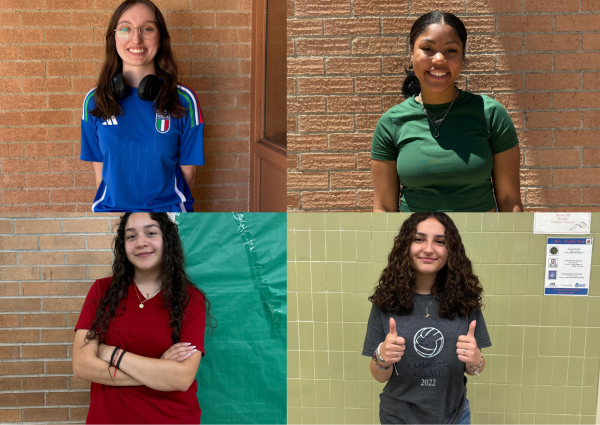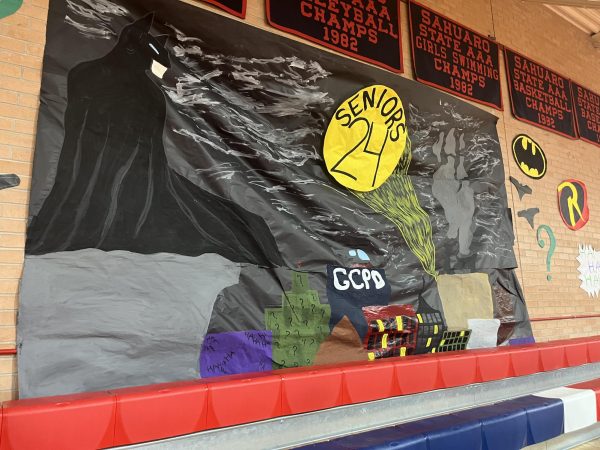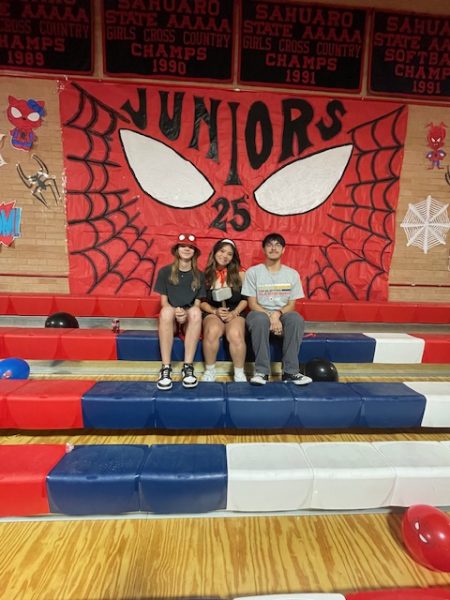Sahuaro Takes on Racism at First Family Meeting
April 25, 2022
Racial disparities and divisions plague our schools and classrooms on a daily basis. Systemic racism deeply affects our community and society, yet, actual discussions on racism aren’t typically part of our public school curriculum. Aside from your standard unit on civil rights in a history class or a discussion on racial bias while reading To Kill a Mockingbird, the subject tends to go untouched without student involvement. This lack of drawing attention to racism and its harmful effects has allowed it to grow, which is something that Sahuaro admin is trying to tackle head-on.
An email was sent out on April 12th by Principal Estrella that stated, “We need to have a frank conversation about racism. We are receiving reports about offensive, racial remarks being used among students. Some are loose, conversational utterances. Others are more malicious, directly targeting our Black students.” The email continued that there would be a family meeting held on Wednesday, April 20th at 6:00 pm in the school’s auditorium, so staff could “gain a deeper perspective on the issue” and hear stories directly from students to work towards a solution.
Estrella welcomed parents, students, and other family members into the auditorium and began the conversation by explaining his expectations for the meeting. “My role tonight is to facilitate the conversation and to do more listening than speaking. Your role tonight is to share with me your experiences. If you’re a parent, share with me what you’re hearing, if you’re a student share with me what you’re seeing.” He continued his explanation by describing what prompted the meeting. “We’ve been receiving reports that a lot of racial slurs are being used by our students. The most common, for now, I’ll just call it “that word,” is being used among our students sometimes casually and sometimes more aggressively. It’s being used at a rate that’s pretty disturbing, and when I talk to students, they’re not comfortable with it, but they’re not comfortable confronting it.” According to some parents who are also Cougar alumni, this has been a common occurrence since they were in school. Estrella expressed that what really pushed the need for this meeting were the reports of staff hearing students use these slurs and not reacting. “I can understand why students don’t want to respond, that’s not their responsibility, but I do think it’s important that our adults on campus do respond.” He then explained that his goal for the meeting was to get a better idea of what students are facing during their day-to-day experiences at Sahuaro, so that after the meeting, admin could figure out how to respond and what actions they need to take to make an impact.
As room for conversation began to open up, many attendees shared their ideas on how to stop racism at our school. Some parents discussed ideas about assemblies regarding the topic or more diverse clubs, however one attendee stated, “That won’t go anywhere if students aren’t being addressed when using this language. You can say all day that this won’t be tolerated, but if it comes up and is not addressed in that moment, none of this other stuff will matter.” Another parent shared, “We have to look at the teacher’s side too, because, people are afraid to address things like that. They’re afraid to speak up because they don’t want to get in trouble, so I think it’s important to have these conversations with students and faculty together and let them know that this isn’t acceptable.”
One white attendee, a grandparent of a Sahuaro student and a substitute teacher, was unsure herself of what form of the word was acceptable and what was not. She questioned if the end pronunciation changed the offensiveness or not, to which many other group members responded that it did not. “See, students have just told me that as long as it’s not a hard ‘R,’ that it’s acceptable,” she said, to which another parent responded, “But they’re children. I’m fourty-three, I’ve been black a long time and I have never come across another time where it’s okay.” The group followed up the comment with a conversation about generational differences and what is seen as acceptable today versus when they were in school. Estrella explained that with most of the students he’s spoken with, there are two main categories where students fit in when using the word. “One category where many students fall in is they don’t know the whole history of this word. They don’t know how this word was used to suppress, to harm, to abuse, they just don’t understand how offensive it can be. Then there are the students who do know the history. An example one student used is to take this instrument that was used to bring me down, to shame me, and to hurt my family, it’s taking the sword out from my gut and then claiming it as mine. It’s taking that power back.”
“When I asked students how we should respond, one of the most common answers was ‘read the energy,'” Estrella continued. “When we hear it, they want us to address it, but not in a way that shames a student.” The conversation continued onto what punishments are justified for racism, and how students can feel more included despite their differences, whether it be based on race, sexuality, or gender. Parents pushed for more club involvement at the school that promotes equality, something Estrella agreed with. While no final decisions were made on how the subject will be handled in the future, it was made clear that this isn’t the last time a meeting on racism would be held. “We have to do this regularly,” Estrella said in his closing statement. “We need to continue this conversation, and we’ll do it in intervals. My hope is to get more people here. This is a good start, but we need more.”

